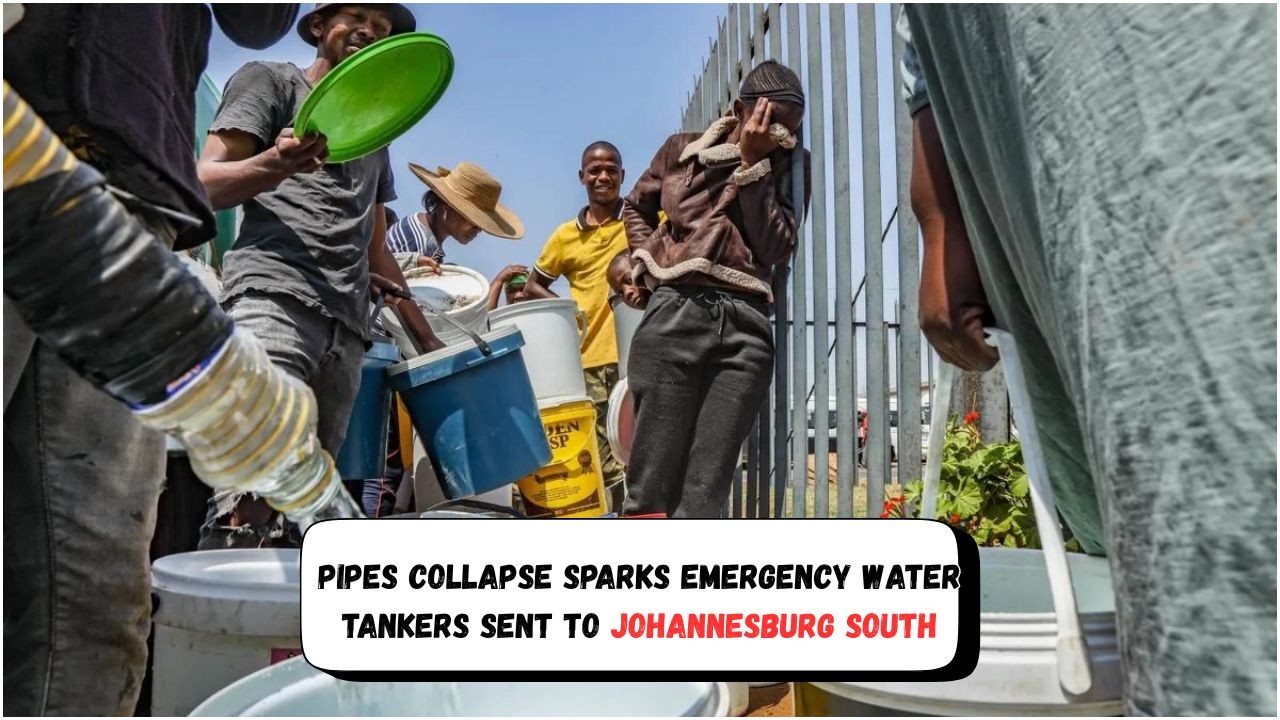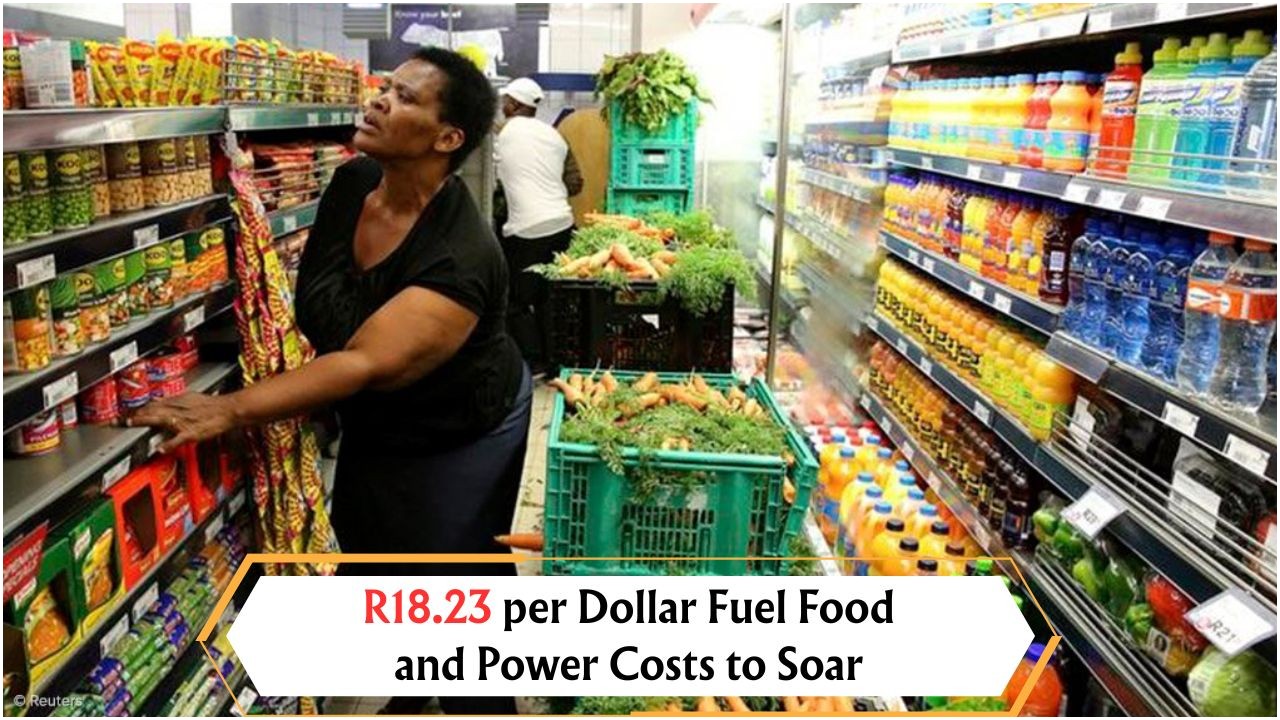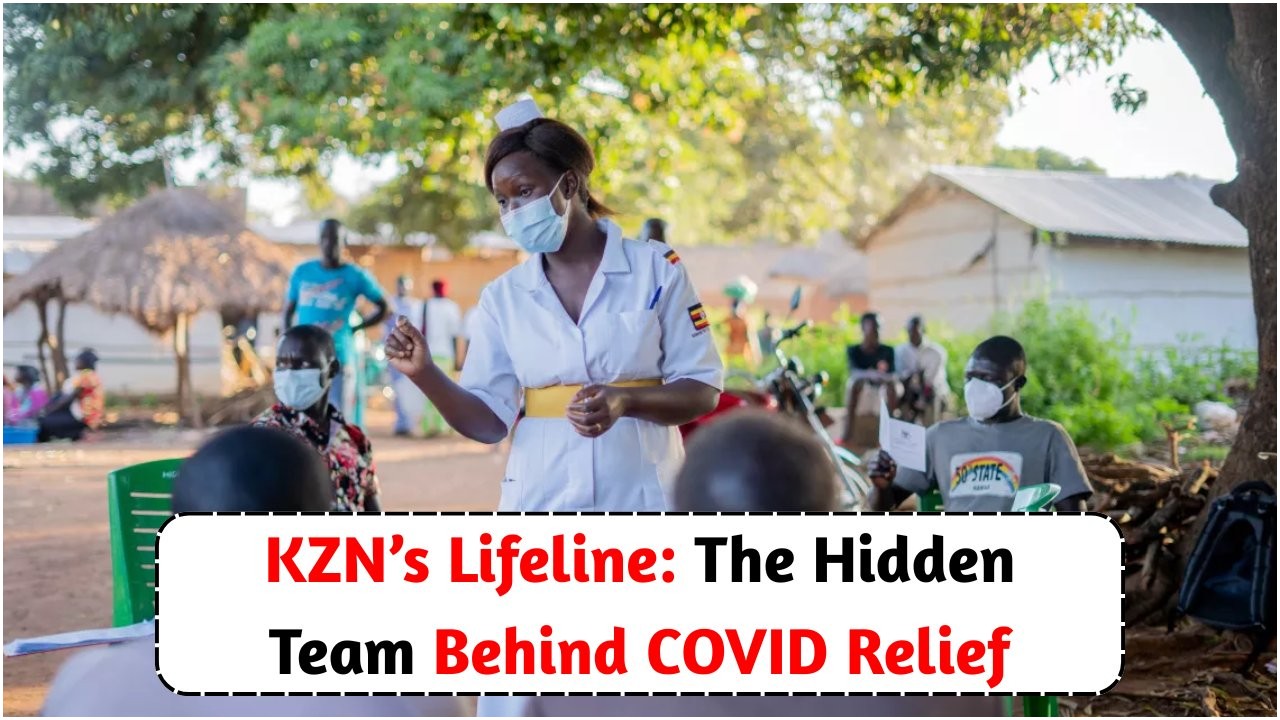Johannesburg’s Water Crisis: Tanker Emergency Hits Southern Suburbs This August: Johannesburg is grappling with a severe water crisis that has escalated to alarming levels this August. Residents in the southern suburbs are facing unprecedented water shortages, leading to an emergency deployment of water tankers to provide relief. The city’s infrastructure is buckling under the pressure of increased demand and aging systems, leaving many households without a consistent water supply. This crisis highlights the urgent need for sustainable water management solutions and infrastructure upgrades to ensure reliable access to this essential resource. The situation has sparked discussions among local authorities, experts, and community members about the future of water security in Johannesburg.
Understanding the Scale of Johannesburg’s Water Crisis
In recent years, Johannesburg has experienced fluctuating weather patterns that have significantly affected water availability. The current crisis is a culmination of these environmental challenges, coupled with an aging infrastructure that struggles to meet the demands of a growing population. The southern suburbs, in particular, have been hit hard, with many residents reporting intermittent water supply for weeks. This has forced the city to implement emergency measures, including the deployment of water tankers to ensure that essential needs are met. The impact of this crisis extends beyond daily inconvenience, as it poses serious public health risks and affects local businesses, schools, and healthcare facilities.
- Increased demand due to population growth
- Aging water infrastructure
- Climate change-induced droughts
- Inadequate investment in water systems
- Pressure on local resources
- Public health concerns
- Impact on businesses and services
The Role of Water Tankers in Alleviating the Emergency
The deployment of water tankers has become a critical component of Johannesburg’s response strategy. These tankers are strategically dispatched to the most affected areas, ensuring that residents have access to clean drinking water. While this solution provides temporary relief, it also underscores the severity of the situation and the need for more sustainable long-term solutions. The reliance on tankers highlights the gaps in the existing infrastructure, which requires urgent attention and investment. As the city navigates this crisis, the role of water tankers serves as a reminder of the importance of proactive planning and robust water management systems.
| Area | Days Without Water | Tankers Deployed | Population Affected |
|---|---|---|---|
| Soweto | 3 | 15 | 200,000 |
| Orange Farm | 5 | 10 | 50,000 |
| Ennerdale | 2 | 8 | 30,000 |
| Eldorado Park | 4 | 12 | 70,000 |
Solutions and Strategies for Future Water Security in Johannesburg
Addressing Johannesburg’s water crisis requires a multifaceted approach that combines immediate relief efforts with long-term planning. Investments in infrastructure upgrades are essential to ensure the sustainability and reliability of water supply systems. Additionally, implementing water conservation initiatives and raising public awareness about responsible water use can help alleviate pressure on existing resources. Collaboration between government agencies, private sector partners, and community organizations is crucial to developing innovative solutions that address the root causes of the crisis and prevent future occurrences. As Johannesburg navigates these challenges, the focus must remain on building resilience and ensuring that water security becomes a top priority for the city.
 Feeding Hope: Action in Isolation’s Grassroots Approach to Combating Hunger in Rural South Africa
Feeding Hope: Action in Isolation’s Grassroots Approach to Combating Hunger in Rural South Africa
- Infrastructure upgrades
- Water conservation initiatives
- Public awareness campaigns
- Collaboration with stakeholders
- Investment in technology
- Policy reforms
- Community involvement
- Research and innovation
Community Involvement in Tackling the Water Crisis
Community involvement is a vital component of addressing Johannesburg’s water crisis. Residents play a crucial role in water conservation efforts, and their active participation is essential for the success of any initiative. Local organizations have been instrumental in mobilizing resources and raising awareness about the importance of responsible water use. Educational programs and community workshops have been organized to empower residents with the knowledge and skills needed to contribute to water-saving efforts. Engaging the community not only helps in immediate relief efforts but also fosters a sense of ownership and responsibility towards sustainable water management.
| Organization | Initiative | Impact | Participants |
|---|---|---|---|
| Water Wise SA | Workshops | Increased awareness | 500 |
| Green Jozi | Conservation Campaigns | Reduced consumption | 1,000 |
| Jozi Volunteers | Community Clean-ups | Improved water quality | 300 |
| Eco Future | Educational Programs | Enhanced knowledge | 700 |
| City of Johannesburg | Public Forums | Policy input | 200 |
Technological Innovations in Water Management
As Johannesburg confronts its water crisis, technological innovations offer promising solutions for improving water management and distribution. Advanced monitoring systems and data analytics can enhance the efficiency of water networks, allowing for real-time tracking of leaks and optimizing distribution. Smart irrigation systems, rainwater harvesting, and greywater recycling are innovative approaches that can reduce water wastage and ensure sustainable usage. By leveraging technology, Johannesburg can modernize its water infrastructure and build a resilient system capable of withstanding future challenges.
- Real-time monitoring of water networks
- Data analytics for leak detection
- Smart irrigation systems
- Rainwater harvesting
- Greywater recycling
- Automated distribution systems
FAQ Section
| Question | Answer | |
|---|---|---|
| What caused Johannesburg’s water crisis? | The crisis is due to a combination of climate change, aging infrastructure, and increased demand. | |
| How are water tankers helping? | Water tankers provide temporary relief by supplying water to affected areas. | |
| What long-term solutions are being considered? | Infrastructure upgrades, water conservation initiatives, and technological innovations are being explored. | |
| How can residents help alleviate the crisis? | Residents can conserve water, participate in community initiatives, and support awareness campaigns. | |
| What role does technology play in water management? | Technology enhances efficiency through real-time monitoring and innovative water-saving solutions. |
Policy Reforms for Sustainable Water Management
Policy reforms are critical to establishing a framework for sustainable water management in Johannesburg. These reforms should focus on strengthening regulations, promoting efficient water use, and incentivizing conservation practices. By aligning policies with environmental goals, the city can foster a culture of sustainability and ensure that water resources are managed responsibly. Collaborative efforts between government, industry, and communities are essential for implementing effective policies that address the current crisis and safeguard water security for future generations.
| Policy Area | Reform Objective | Expected Outcome |
|---|---|---|
| Water Use Regulation | Promote conservation | Reduced consumption |
| Infrastructure Investment | Modernize systems | Improved reliability |
| Public Awareness | Encourage responsible use | Increased community engagement |
| Technological Adoption | Enhance efficiency | Optimized distribution |
| Stakeholder Collaboration | Foster partnerships | Comprehensive solutions |
Looking Ahead: Building Resilience in Johannesburg
- Invest in Infrastructure Upgrades
Enhancing the city’s water infrastructure is crucial to improving reliability and capacity. - Promote Water Conservation
Implementing conservation initiatives can significantly reduce water wastage. - Leverage Technology
Utilizing technological advancements can optimize water management systems. - Foster Community Involvement
Engaging residents in water-saving efforts ensures long-term success. - Implement Policy Reforms
Strengthening regulations and incentivizing conservation practices is essential for sustainable management.
How is Johannesburg addressing the water crisis in its southern suburbs?
By deploying emergency tankers this August.








